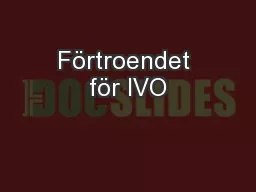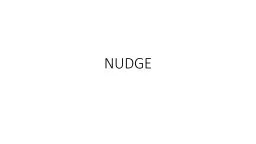PDF-: what is it and why is it good for you?
Author : myesha-ticknor | Published Date : 2016-11-07
White paper Cool safe
Presentation Embed Code
Download Presentation
Download Presentation The PPT/PDF document ": what is it and why is it good for you?" is the property of its rightful owner. Permission is granted to download and print the materials on this website for personal, non-commercial use only, and to display it on your personal computer provided you do not modify the materials and that you retain all copyright notices contained in the materials. By downloading content from our website, you accept the terms of this agreement.
: what is it and why is it good for you?: Transcript
Download Rules Of Document
": what is it and why is it good for you?"The content belongs to its owner. You may download and print it for personal use, without modification, and keep all copyright notices. By downloading, you agree to these terms.
Related Documents














![[BOOK]-Status: Why Is It Everywhere? Why Does It Matter?: Why Is It Everywhere? Why Does](https://thumbs.docslides.com/956296/book-status-why-is-it-everywhere-why-does-it-matter-why-is-it-everywhere-why-does-it-matter.jpg)